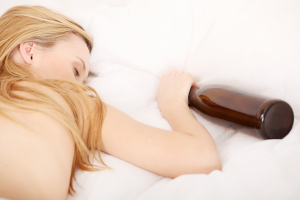
14 Aug Experimenting During the Teen Years: Substance Abuse in Youth
 Adolescence is a time in a child’s life in which many changes are occurring. It can be an extremely confusing and trying time for them, as well as their parents. As their parents, it is important that you educate your children about drugs, alcohol, sex, and what it means to be “peer pressured”. Keeping the lines of communication open between you and your child is essential in order to be in the loop of what is going on in their lives.
Adolescence is a time in a child’s life in which many changes are occurring. It can be an extremely confusing and trying time for them, as well as their parents. As their parents, it is important that you educate your children about drugs, alcohol, sex, and what it means to be “peer pressured”. Keeping the lines of communication open between you and your child is essential in order to be in the loop of what is going on in their lives.
Your child may decide to experiment with any combination of the above listed, however, there comes a time when drug/alcohol use shifts to drug/alcohol abuse. How honest they are, if they come home intoxicated regularly, if they spend a lot of spare time at parties, and the friends that they choose to surround themselves  with are all great indicators of substance abuse.
with are all great indicators of substance abuse.
Lying or hiding things may be an indication that your child is using or abusing substances. This is not true in all cases. It is normal for them to want their space and private life. However, when they are lying about large things (where they are, where they are going, what they are doing) it can be cause for concern. If you and your child have a healthy and functioning relationship in which they are comfortable communicating with you, they shouldn’t feel the need to hide from you. It is important to approach them from a loving and caring place, avoiding accusatory statements. Give them the opportunity to open up to you.
If your child is coming home intoxicated on a regular basis, it could be an indication that they are abusing substances. Using substances may be a way for your child to escape the emotional turmoil they are experiencing. However, using substances as a coping strategy is not healthy. This is another reason it is very important that you keep an open line of communication with your child.
Older adolescents are fairly likely to attend parties. It is naïve to not think that at some (if not all) of these parties alcohol will be served and drugs will be offered, especially if there is not appropriate supervision. Your child may opt to spend more time than not a parties. It is important that you educate your child about the dangers of participating in underage drinking as well as drug use of any kind.
The friends that your child chooses to spend their time with is a good indicator as to whether or not they will be pressured to try alcohol and/or drugs. Now it is impossible to judge a book by its cover, however, it is important to know the other children your child associates with. Knowing who they are and what they are like will give you a good indication of the likelihood that they consume alcohol/use drugs. Again, it is extremely important to educate your child about peer pressure and the dangers of consuming alcohol/drugs.
It is impossible to completely protect your child from being exposed to alcohol and/or drugs. With the normalization of alcohol and/or drug use during adolescence, it is becoming harder and harder for parents to make their children understand the risks and repercussions that their activities can have on their lives as well as the lives of others. The best thing that you can do is give them the facts, and encourage them to make good choices.
